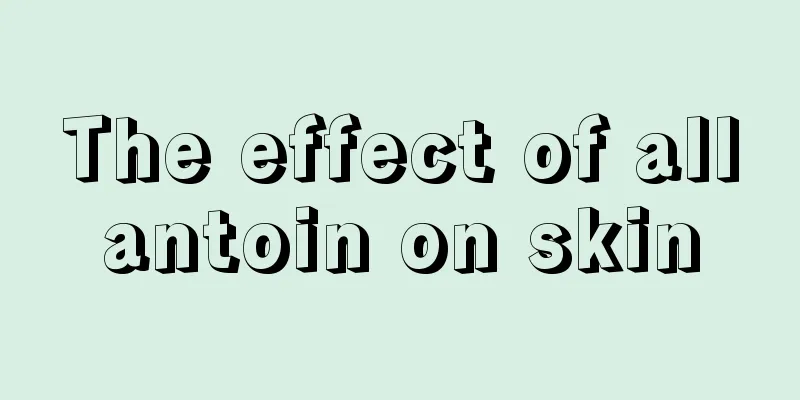The effect of allantoin on skin

|
Skin is the largest organ tissue in the human body. It can help us resist external damage, keep our body warm, and keep our body temperature at a normal level. We need to protect our skin, but it is undeniable that some diseases can harm our skin. For example, herpes can cause many small red bumps or blisters on our skin. So, what effect does allantoin have on our skin? Allantoin is an imidazole heterocyclic compound, a derivative of uric acid, and a natural component of human skin. Uric acid, as an antioxidant, reacts with free radicals to produce allantoin. In 1912, Mocllster extracted allantoin from the underground stems of Boraginaceae plants. Allantoin can promote cell tissue growth, metabolism, and soften stratum corneum protein. These properties are particularly evident when allantoin is applied to ulcerated and suppurated skin, so it has the ability to accelerate wound healing and is a good active agent for treating skin injuries. Allantoin was once called an anti-irritant, which can effectively reduce the stimulation of irritants; at the same time, it is also an antioxidant. Like some other water-soluble vitamins, its ability to gather free radicals is similar to that of vitamin C, so it can enhance the antioxidant capacity of cells. Therefore, the U.S. Food and Drug Administration (FDA) classifies it as a Class I highly effective active ingredient skin care agent that is non-toxic, non-irritating, and non-allergenic. The role of allantoin in cosmetics 1. Moisturizing and repairing effect Allantoin has a very good moisturizing effect, especially for chapped and rough skin, it can restore its smoothness and moisture. At the same time, it can enhance the water absorption capacity of the outermost layer of skin and hair, improve the hydrophilicity of keratin molecules, repair the damaged stratum corneum, and restore its natural water absorption capacity. 2. Moisturizing effect Allantoin not only promotes the water absorption capacity of the outermost layer of skin and hair and reduces the evaporation of skin moisture, but also forms a lubricating film on the skin surface to seal in moisture, thereby achieving the effect of moisturizing the skin. 3. Softening cuticle effect Allantoin has a unique keratin-dissolving property, so it has the effect of softening keratin. While stripping off metabolic waste keratin, it fills the intercellular spaces with water to make the skin moisturized and shiny. 4. Anti-inflammatory and antioxidant effects Since allantoin is an amphoteric compound that can combine with a variety of substances to form complex salts, it has the effects of light protection, bactericidal preservation, analgesic and antioxidant. It is widely used as an additive in freckle cream, acne liquid, shampoo, soap, toothpaste, shaving lotion, hair conditioner, astringent, antiperspirant and deodorant lotion, etc. When purchasing skin care products, you might as well take a look at the ingredients behind them and choose the right products based on your skin problems to improve your skin and make it better and better. |
<<: Can garlic sprouts be eaten
>>: What does post-urinary residual mean
Recommend
Are solid nodules malignant?
Many people think that solid nodules are malignan...
Where should I cupping for breast hyperplasia
Many women often suffer from breast hyperplasia d...
What causes frequent bowel movements but not diarrhea?
Frequent bowel movements that do not constitute d...
A red stripe will appear when the skin is scratched
Skin health has always been an issue of concern t...
What are the symptoms of genital warts caused by human papillomavirus
The main route of transmission is through unclean...
There is a light-colored spot on my chest
If you find a light-colored patch on your chest, ...
Treatment of lung cancer
Treatments for lung cancer include: (1) Surgical ...
Which cold medicine is best? You also need to choose the right medicine to treat a cold
When you have a cold, you cannot take medicine at...
Three bad habits can help you live longer
There is no absolute good or bad in the world. As...
Fingers sweat easily_Hands sweat easily
Sweating is actually a very common phenomenon in ...
How to remove the smell in the house
We all know that newly renovated houses have a sp...
What do you need to check for in a physical examination
In fact, people nowadays are very busy in all asp...
What is the cause of deep overbite of teeth
Teeth are important organs of the human body. The...
Surgical treatment of testicular cancer
Testicular cancer patients have good results afte...
What shampoo can prevent hair loss? Daily products can also prevent hair loss
Hair reflects a person's mental state, but un...









